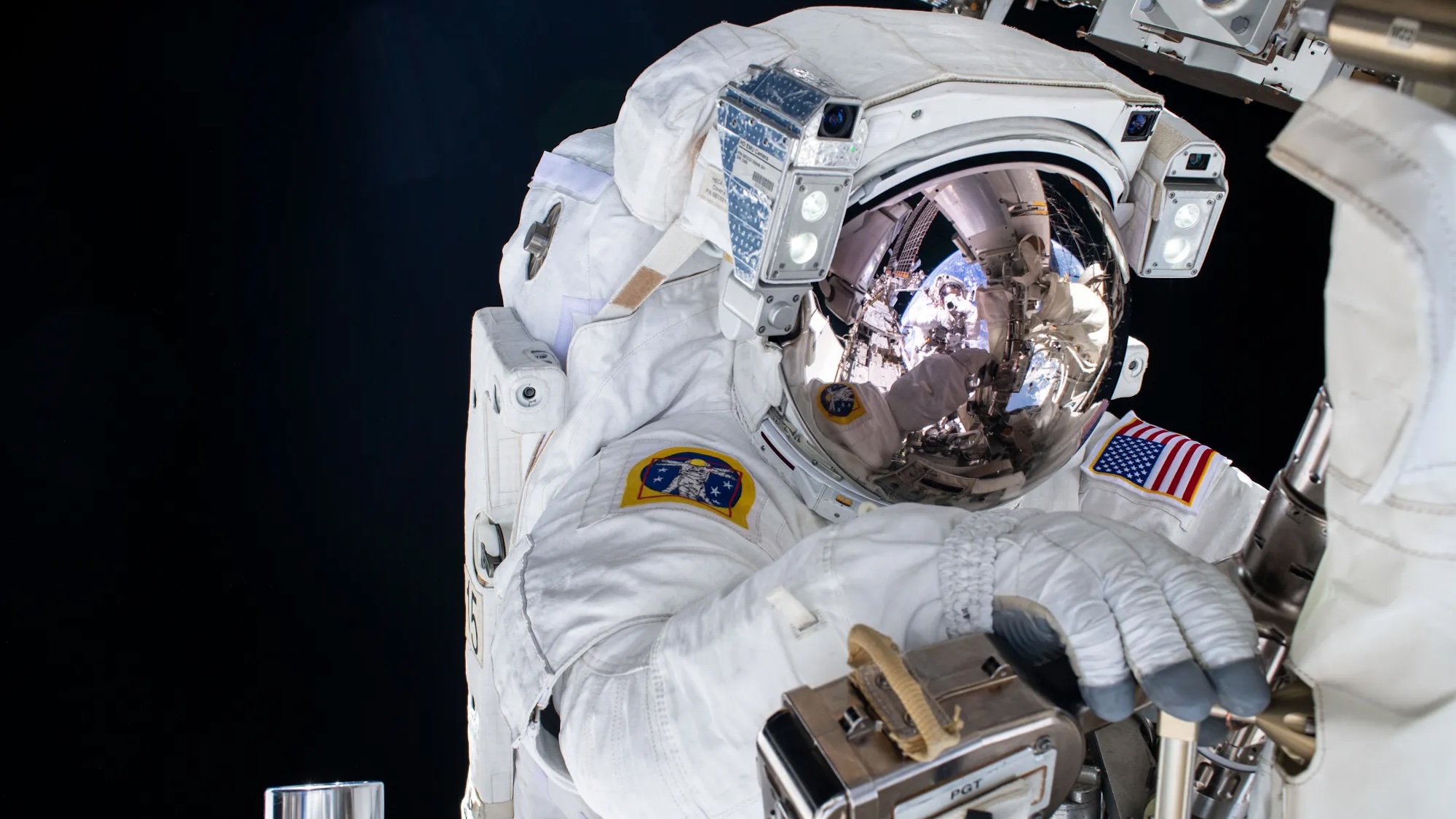NASA is inviting audiences to watch live as astronauts gather for microbial life clinging to the International Space Station. On June 13 at 8AM EST, Tracy C. Dyson and Matt Dominick will leave through the ISS Quest airlock to collect samples of microorganisms that will then be analyzed to hopefully learn more about how some of the tiniest known living entities can survive in the harsh vacuum of space.
Depending on the International Space Station’s positioning in relation to the Sun, solar radiation can heat the exterior to between 248 and -148-degrees Fahrenheit. Pair that with the vacuum of space and you get a death sentence for almost every known living creature—but “almost” is the key word.
NASA will begin livestreaming ahead of its scheduled “US spacewalk 90” on June 13 at 6:30AM EST, which can be accessed through NASA+, the official NASA television channel, NASA app, YouTube, and the agency website. Audiences can also check it out through the YouTube stream embedded below.
Scientists have known for years that certain organisms called extremophiles are perfectly capable of withstanding the outer space’s dramatically varying environments for extended periods of time. Tardigrades, also known as “water bears,” have been documented surviving outside the Earth’s atmosphere for as long as 10 days, while certain bacteria and microbes can even endure for years. Learning how microscopic life manages these feats of self-preservation could help researchers gain a better understanding of how life first originated on Earth—and how it may even travel between planets nestled within meteors and comets.
Since both astronauts’ reflective helmet visors will make it impossible to differentiate between the two, Dyson will serve as crew member 1 while wearing a red-striped suit. Dyson will meanwhile wear an unmarked suit. Thursday’s excursion will be Dyson’s fourth spacewalk and Dominick’s first while aboard the ISS. During the roughly six-and-a-half-hour spacewalk, both astronauts will also finish removing a faulty electronics module called a radio frequency group from a communications antenna installed on the station’s starboard truss.
[Related: Let this astronaut show you around the International Space Station.]
Dyson and Dominick have resided with the five other crew members of Expedition 71 in the ISS since April and are scheduled to return to Earth this September. Right now, however, the inhabitants are currently hosting two guests—NASA astronauts Butch Wilmore and Suni Williams, who arrived on June 6 after piloting the first crewed (and much delayed) Boeing Starliner launch. Wilmore and Williams are currently scheduled to return home on June 18.




















Discussion about this post